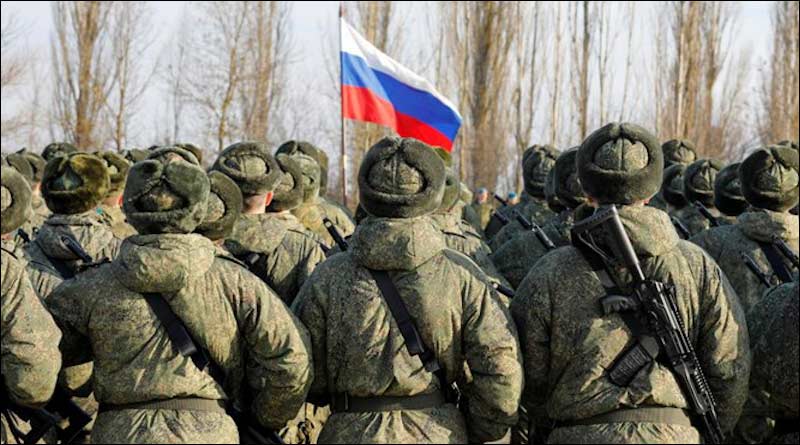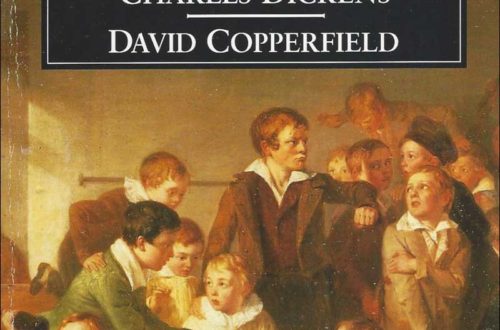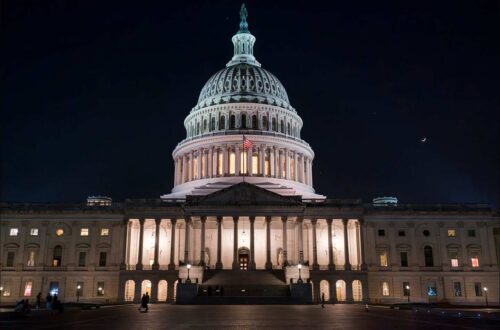Or, Many Questions and Few Answers
I read yesterday about how the landscape outside of Avdiivka was just littered with the Russian war dead. Ukrainian intelligence recorded phone intercepts of Russian soldiers calling to their relatives about how they are being sacrificed. “There’s no f—— ‘dying the death of the brave’ here,” one soldier explained to his brother from the front in Ukraine’s Kharkiv region. “You just die like a f—— earthworm.” The fields are full of the Russian war dead, as their generals are sending them off to die like sheep. Poorly led, poorly trained, hungry and demoralized, old and inferior weapons – the vaunted Russian military looks pathetic. It is amazing. I scratch my head and wonder at the spectacle. Vladimir Putin is pouring the young men of his country into the meat grinder in Ukraine at a great rate, and the Russian professional military forces seem to have been used up in the violent first 12 months of the conflict. At present the Russians are relying on new recruits, draftees – and even prison inmates who have been promised leniency for their service in combat. Why? Because they are desperate for soldiers.
Complaints about Russian military leadership throwing away their manpower through incompetence is nothing new in this war – this was the whole thrust behind Yevgeny Prigozhin’s complaints against the mainline generals of Putin’s regime. It is why he launched the semi-putsch against the leadership last June. That is why Prigozhin is now dead. That is why Putin had him killed.
The mass bloodshed of the past almost two years continues unabated. There seems to be no end in sight. It brings to mind this question: To what extent will Russians continue in this struggle to kill an independent Ukrainian nation-state? That is an important question on my mind right now. It is the subject of this essay.
Putin seems to like his odds in a long bloody grinding war against Ukraine. He has more people, a bigger economy, and he thinks he can outlast Ukraine. A democratic Ukraine next door to Russia is an existential threat, in Putin’s opinion, and so any price is worth paying to save Russia by subjugating Ukraine. If Russia is far from defeating Ukraine on the battlefield, they are far from being unable to continue the fight. A stalemated Russo-Ukrainian War could go on indefinitely. Time and resources would seem to favor Russian power in such a case.
On the other hand, Putin started this fight to strengthen Russia and its power, as he sees it, while the opposite has happened. The invasion of Ukraine reinvigorated NATO, brought Sweden and Finland into it, and turned the West against Russia almost uniformly. The Ukrainian War has severely damaged Russia’s economy, and for the foreseeable future Russia is untouchable in much of the developed world. But Putin doesn’t seem to care. From his point of view the war was long in coming (ie. expansion of NATO) and was necessary. He is “all in” about Ukraine. He claims the survival of Russia is on the line. (Or is it really Putin’s despotism which is on the line?) And Putin’s opinion is the only one that really matters, at least for the moment. This is the reality in countries led by dictators.
But even dictators need support. How much real support does Putin have inside Russia? What do the Russians themselves think?
After some research I read the following today from the Carnegie Endowment for International Peace:
“He [Putin] faces little pressure at home from a docile public mostly approving of his handling of the situation in general, supportive of the war, and accepting of the narrative the Kremlin has used to justify it. The Russian leader is probably betting that Ukraine will eventually be unable to endure a true war of attrition and that the West will lose patience with it and curtail its support for Ukraine.”
“Putin’s War Against Ukraine: The End of The Beginning,” by Eugene Rumer
This makes me think. Are the Russian people “docile” in the face of an unending bloody war against Ukraine for whom the butcher’s bill is high? Are Russians in favor of an unremitting struggle of indefinite duration with its neighbor to the west? And almost all the other countries in the West?
It is hard to tell. Russia is a dictatorship. Nobody there speaks candidly to journalists, especially foreign ones, if they value their safety. Public opinion in Russia is opaque. How many common folk on the street in Moscow were telling foreign correspondents on camera what they really thought about living in the Soviet Union in 1975?
I look at the situation and wonder. I think about history as a guide to understand the present, and even to predict the future. But how is the Russian present similar to the Russian past? How is it different? That is no easy question to answer. But still I reflect on it.
Putin might think he is Russia. That his opinion is law. That the Russian people will do whatever he wants. That the opinions of nobody else matters in the end. In a way Putin is correct to think this. He is the dictator of this country and his power is unconstrained. People will go to prison for opposing the government, or this “special operation” in Ukraine. Only a hero, or a martyr, most likely both, would risk it.
But Czar Nicholas II was also a dictator. Like Putin he also led Russia into bloody protracted wars. And the blowback from Russians came back to bite him in the butt big time. Could the same happen to Vladimir Putin? As they say, “Dictators always look good until the last 15 minutes.”
Russian public opinion still matters. Putin might be utterly convinced that a democratic Ukraine is an existential threat to expansive Russian power, and that unending bloody war and isolation from the West are worth it. He may have decided that the Russian people should shoulder the costs and pains of the conflict indefinitely, and so he has set his government and society to work. But it is unclear if the Russian people share this desire. Will they bear this burden for the long-term?
Russians, living under a dictatorship, have no way to express any dissent from the official party line except through extralegal activity. There was the halfhearted coup d’etat by Wagner Group leader Yevgeny Prigozhin in June 2023. He was killed two months later, unsurprisingly. It would be an incredibly brave – or incredibly reckless – person who wants to follow in Prigozhin’s footsteps.
So where do things go now? I have way more questions than answers.
Will a “docile” Russian people follow Putin indefinitely into this “long war” against neighboring Ukraine? A generation-long struggle to undo the “anomaly” nation-state of an independent Kiev? Maybe.
Or will there be increasing signs of dissent, and even violence, inside Russian society? Will Russians tire of the endless casualties and endless costs of a protracted, painful war? Maybe.
Anyone who tells you they know what will happen in the future should be disregarded. Such prognostication is the purest form of political chicanery.
But looking clearly at the past and allowing it to help you make a well educated guess about the future… that is a different matter entirely. So I will do that.
Whether it is French or British soldiers complaining about being marched to their deaths en masse on the Western front in WWI… or anti-draft riots in New York City during the bloody Civil War… democratic governments sensitive to public opinion do not have unlimited tolerance for battlefield deaths. Undemocratic regimes have more room to operate.
The Chinese soldiers died like flies fighting against the “meat grinder” defense of the United Nations Command during the Korean War without apparent complaint. (The military value of Chinese soldiers were in their great numbers, not in their armaments or skill in battle.) The Japanese during WWII seemed content to fight to the last man, woman, and child in defiance of Allied advances throughout Asia and an invasion of the home islands in 1945. No real force in Germany seemed ready to stand up against the Third Reich regime, even as their country was being reduced to rubble from 1943 all the way to the bitter end. In fact, plenty of hardcore Japanese or Germans militarists late in WWII were ready to die for their unworthy cause long after any hope of victory was gone. These fanatics died without changing the course of the war at all. They died for nothing. Or to be more exact, they died for the despotic leaders who led them to war. Was it worth it?
Illiberal regimes are wont to throw away the lives of its soldiers. Look at Saddam Hussein’s Iraq or Ruholla Khomeini’s Iran in their disastrous 1980-1989 war. An estimated 1,000,000 men died in that bitter war between neighbors. And when it finally ended it was a draw. What was the point?
Will Russia today fall into a similar situation in this Ukraine War? Will Russians follow Putin wherever he might lead them? Putin has no doubts as to the justice of his cause. He is “all in.” He will pay whatever the price. Are the rest of the Russians on board? Will they pay the price?
I suspect the Ukrainians are all in. They seem motivated. Outnumbered and outgunned, the Ukrainians are outfighting the Russians. Or at the least they are fighting the Russian bear to a draw, with their own valor and advanced Western weapons. I would not count Ukraine out. The Ukrainians have plenty of guts and their military is battle-hardened. It is an inspired people fighting for their freedom, and there is enormous power in that.
What will happen? How will this war end? How will Putin’s reign end? What is the endgame? What kind of a country will Ukraine become? What does Eastern Europe look like in five or ten years? Will Ukrainians in the future “reap the blessings of liberty” under a well-ordered government which makes all the blood, struggle, and sacrifice of this war worth it? Will Ukraine become an independent democracy along Western lines? Or something more autocratic in the Russian mold? Something in the middle?
We shall see, we shall see.
But I suspect trouble for Russia, along the lines of January of 1905. Or March of 1917. Or December of 1991. Wars rarely go as planned and often bring unforeseen outcomes. War is a risky venture. That is true for any nation, but even more so for Russia, looking at their history.
A “docile” Russian people?
We shall see.
The future is by its nature unknowable. Anyone who says differently is being dishonest. We struggle to discern the truth through the confusion and seeming chaos of the moment. But history is a good guide, and she helps us to try to understand what is happening now and why. The past is a teacher. Let us be instructed. With eyes wide open let us strive to see clearly.
And thereby make wise and intelligent foreign policy choices for the United States of America, our allies, and Ukraine.






One Comment
thoughtsofanoneater
Thank you for writing this well thought out piece, rjgeib!